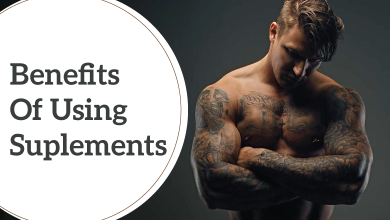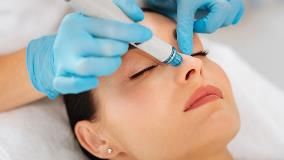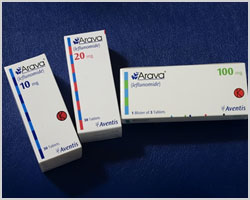7 Tips to Overcome an Addiction

Addiction is more than a habit. It is a kind of disease that has disastrous effects on your brain and behavior. It is impossible to stop when you’re addicted to something, even when the addiction presents a threat to your mental or physical well-being. Nowadays, drug addiction is widespread among teenagers and young people. The danger of addiction and the rate at which you become addicted differ depending on the drug. Addiction isn’t just about cocaine, heroin, or other hardcore drugs. Certain medications, anti-anxiety and sleep drugs, alcohol, and nicotine can also lead to addiction.
Drugs can alter the way your brain functions over time. As a result, it makes you lose control and leads to dangerous or at least unfavorable situations. Drug addiction is harmful not just to yourself but also to others and the environment. You may assume that you have total control over the amount and frequency you use. However, in many cases, an addict cannot control the urge to use more. It causes intense cravings making sobriety very impossible to obtain.
Rehabilitation is always an option, no matter how awful your condition appears to be. You can achieve your recovery goal once you’re determined to do so. The following suggestions can assist you in regaining control and living a healthy, addiction-free life.
1. Accept that you have a problem
Admitting that you are wrong and have a problem is the most challenging step of rehabilitation. Because your brain has begun to function abnormally, you will seek explanations and justifications to sustain the habit. Admitting a problem demonstrates that you have the fortitude to confront your addiction and its causes. It will also help you learn ways to counter it. The internet has many resources to offer on dealing with addiction. On platforms like www.addictionguide.com, for example, you may find thorough information about addiction-related problems and their solutions, as well as recovery options. You’ll also learn about the negative consequences of substance abuse on your life and the lives of those around you. You can use a notebook to help you start an addiction recovery plan by identifying trends, goals, motivators, and triggers.
2. Prepare for the change
Preparing for change entails avoiding the stimulants that encourage you towards addictive behavior. It also includes removing the triggering substances from your house. Consider how much better your life will be once you’ve gotten rid of this bad habit. Make a mental image of your life once you’ve conquered your addiction. You may also need to alter your schedule to avoid having as much contact with individuals or places that trigger cravings. You’re well aware that you’re doing everything possible to maintain your health. You’ll experience pleasant energy within yourself and an immediate physical shift once you’ve prepared for the transition.
3. Identify your triggers
A trigger is something that creates an emotional reaction based on previous experience. It creates a strong urge to use the addictive substance again. Knowing about these triggers can help you devise a strategy to avoid them and reduce the chances of doing so. Triggers may include certain smells, seeing people with whom you used to get intoxicated, withdrawing money, rejection, financial crisis, divorce or breakup in a relationship, and stress. So, what are your options for dealing with those troublesome triggers? If at all possible, avoid them in the early phases of your recovery. Also, remember that a trigger is a one-time, transient event. When it appears in your life, recognize it for what it is and realize that feeling triggered is entirely natural.
4. Seek Help
Get in touch with friends or relatives who will help you achieve your recovery goals. Also, let your friends involved in addictive behaviors know that you are planning to change. Feel free to consult a physician in this regard. They can help you assess the problem and withdrawal risks. Besides, your physician will also advise you about treatment alternatives and the best detox for you. It’s critical to have sober friends who will help you get sober. Consider joining a public support group, taking a class, volunteering, or attending events to help you get away from the thoughts of using.
5. Explore Treatment Options
Deciding to get sober is a good decision. It’s time you should explore treatment options to further yourself away from the substance. While addiction therapy varies depending on the drug, a good program will include a variety of methods, including the following:
- Detoxification: Detoxification is usually the initial step in the recovery process. It entails removing a drug from the body while minimizing withdrawal symptoms.
- Counseling and behavioral therapies: Addiction counseling seeks to improve people’s behaviors and attitudes about using substances. These behavioral therapies help to enhance life skills and assist other treatments.
- Medications: It aids in the reduction of cravings and the prevention of relapse, or the resumption of drug use after a period of abstinence.
- Rehabilitation programs: These programs are beneficial, and they usually focus on remaining drug-free while continuing to work, socialize, and care for one’s family.
- Self-help groups: These groups allow addicts to meet people in the same boat as them. It boosts motivation and alleviates feelings of loneliness. Moreover, it can also provide helpful information and education.
6. Analyze the Benefits of Sobriety
The benefits of having a sober life are considerably high than the disadvantages, and they far outnumber your days of addiction. You’ll find renewed energy and motivation, which you can channel into exercise and healthy behaviors. Your hunger and willingness to consume well-balanced meals will return. Another noticeable advantage of sobriety is the return of desire to save money. You reclaim your drive and capacity to work hard and be responsible at work. You will also tend to have a better social life. Getting back to normal will improve your relationships with family members and friends.
7. Indulge in physical activity
Exercise helps in reducing the symptoms of anxiety and depression. Because these are severe withdrawal symptoms, experts recommend exercise to help alleviate them. It also helps eliminate drug cravings and minimize the relapse to addictive behavior. Endorphins are released when you engage in physical activity. These endorphins aid in relaxation and mood enhancement. Exercise, in addition to providing a distraction, can aid in the restoration of brain function that has been harmed by substance misuse.
Final Words
It takes time, encouragement, and support to recover from addiction. It’s not easy, but the advantages of seeking help and beginning the journey significantly outweigh the hazards of continuing with the addiction. Long-term recovery is a continuous process of confronting and coping with life without reverting to addictive behaviors. The suggestions above will undoubtedly assist you in considering a healing process as a means of resuming and improving your life.





